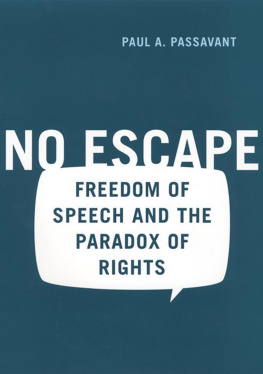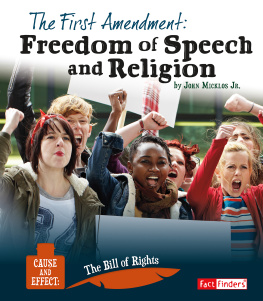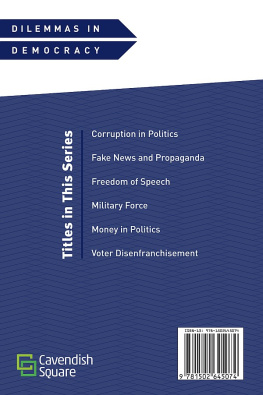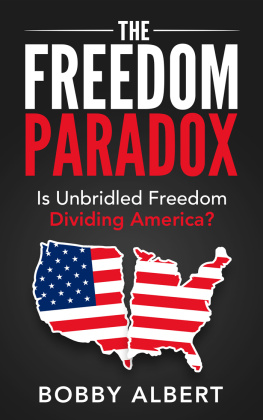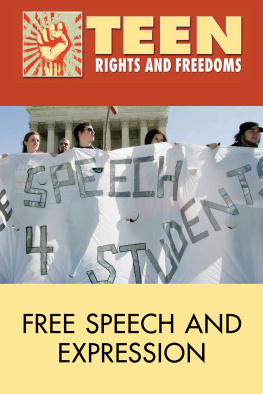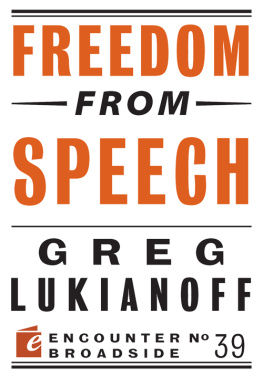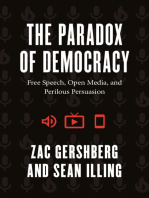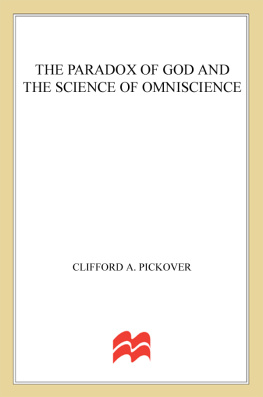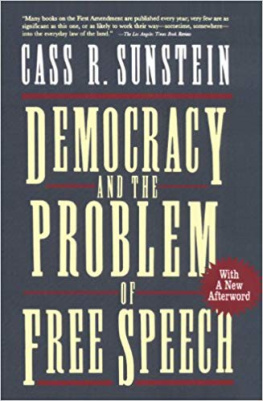Thank you for buying this ebook, published by NYU Press.
Sign up for our e-newsletters to receive information about forthcoming books, special discounts, and more!
Sign Up!
About NYU Press
A publisher of original scholarship since its founding in 1916, New York University Press Produces more than 100 new books each year, with a backlist of 3,000 titles in print. Working across the humanities and social sciences, NYU Press has award-winning lists in sociology, law, cultural and American studies, religion, American history, anthropology, politics, criminology, media and communication, literary studies, and psychology.
No Escape
No Escape
Freedom of Speech and the Paradox of Rights
Paul A. Passavant
NEW YORK UNIVERSITY PRESS
New York and London
2002 by New York University
All rights reserved.
Library of Congress Cataloging-in-Publication Data
Passavant, Paul A. (Paul Andrew)
No escape: freedom of speech and the paradox of rights / Paul A. Passavant.
p. cm.
Includes bibliographical references and index.
ISBN 0814766951 (cloth : alk. paper)
1. Freedom of speechUnited StatesHistory. I. Title.
KF4772.P37 2002
342. 730853dc21 2002005469
New York University Press books are printed on acid-free paper,
and their binding materials are chosen for strength and durability.
Manufactured in the United States of America
10 9 8 7 6 5 4 3 2 1
To my mother, Jean, and my father, Francis, I dedicate this book with love
In the camp of the Left, one often hears people saying that power is that which abstracts, which negates the body, represses, suppresses, and so forth. I would like to say instead that what I find most striking about these new technologies of power introduced since the seventeenth and eighteenth centuries is their concrete and precise character. In the seventeenth and eighteenth centuries a form of power comes into being that begins to exercise itself through social production and social service. It becomes a matter of obtaining productive service from individuals in their concrete lives. And in consequence, a real and effective incorporation of power was necessary.
Michel Foucault, Truth and Power
This triple exergue is intended not only to focus attention on the ethnocentrism which, everywhere and always, had controlled the concept of writing.
Perhaps patient meditation and painstaking investigation on and around what is still provisionally called writing are the wanderings of a way of thinking that is faithful and attentive to the ineluctable world of the future which proclaims itself at present, beyond the closure of knowledge. For that future world and for that within it which will have put into question the values of sign, word, and writing, for that which guides our future anterior, there is as yet no exergue.
Jacques Derrida, Of Grammatology
Contents
Preface
Most scholarship describes legal rights as possessing atomizing power, protecting the individual against the social forces of a political majority or a suffocating community sentiment. While liberals appreciate rights for preserving the priority of the individual to the community, communitarians criticize rights on the very same basis that liberals value themfor giving priority to the individual over the community. Various forms of critical scholarship also see rights as problematicas creating abstract and formalistic equalities that distract from real, substantive inequalities. Disembodied rights do not correspond very accurately to the embodied and socially embedded lives that we lead, do not provide us with an adequate language by which to pursue justice, and may even make matters worse, either by obscuring reality or by doing further damage to the social fabric that ought to be the real subject of justice.
This book argues that the conventional perspectives on rights neglect how recognizing rights for subjects also requires the production of subjects for rights. Under the conditions of modernity, rights have been protected through national constitutions. In the context of the United States, the American people is the referent for the rights recognized in the Bill of Rights. The sovereign American people has authorized the government to exercise certain powers while reserving certain rights to itself. When rights are claimed and contested within the framework of the U.S. Constitution, the subject position to which rights attach is the American people. Thus, when one claims a right like freedom of speech in this context, one also claims identity with the American people. While this enables the possibility of a successful rights claim, it also defines the limits of such rights claims according to the logic of Americannon-American. The conditions of legal inclusion are, necessarily, exclusive grounds.
Because claiming rights incorporates the politics of national identity, we can see that liberal government does not escape the politics of identity. Indeed, liberal legal rights can work hand in hand with nationalism. Therefore, paradoxically, neither the liberal nor the communitarian position on rights is correct. In fact, they can be shown to be two sides of the same coin when they posit, mistakenly, the inherent hostility between rights and community. Practices of rights help to generate forms of social identity that sustain a rights claim. Rights claims, in addition to repressing certain forms of identity, produce identities.
When I prepared to send this manuscript to the publisher as the summer of 2001 was coming to a close, I was led to consider the historical contingency of the main argument of the bookthat legal rights are not inherently opposed to the politics of nationalismby a variety of developments. Not only has capitalism become increasingly and more powerfully global, with processes of governance and legalization following close behind, but protests against the hegemony of global capital are also globalized. A protestor, armed with a fire extinguisher, was shot dead by police in Genoa, Italy, at the G-8 meetings in July. Academia was abuzz over Michael Hardt and Antonio Negris recently published book Empire, in which they argue that a new form of global sovereignty and new opportunities for global resistance have taken hold in the world today. And the U.S. Supreme Court had just decided Zadvydas v. Davis, arguing that the indefinite detention of non-Americans would violate the Constitution since the Fifth Amendment protects the due process rights of all persons.
It seemed like change was afoot. I hoped that rights practices might become dislodged from the exclusionary and biopolitical tendencies of nationalism and linked to other practices that would enable greater justice to be done. I feared, based on a passage in Zadvydas that refers to the conduct of all civilized nations as a normative guide for congressional legislation, that the national basis of rights would be rejected, only to install an even more unfortunate racial practice of discriminating in the matter of rights according to the discourse of Western civilization versus the savage or barbarian. The aftermath of September 11 makes my hopes seem out of place and my fears incompletely realized, with the incompletion making, if possible, the situation even worse.
As the aftermath of September 11 has shown, we now live in a world where the worst of both the nationalism and the racism I discuss in this book have come to govern conduct. Rights continue to be denied and claimed according to the logic of what it means to be an American, as I discuss in this book. Also, unfortunately, we find my diagnosis of postcold war American nationalism to be confirmed in the response to September 11America sees itself and the world in terms of the racialized moral geography of the West versus the Rest.


